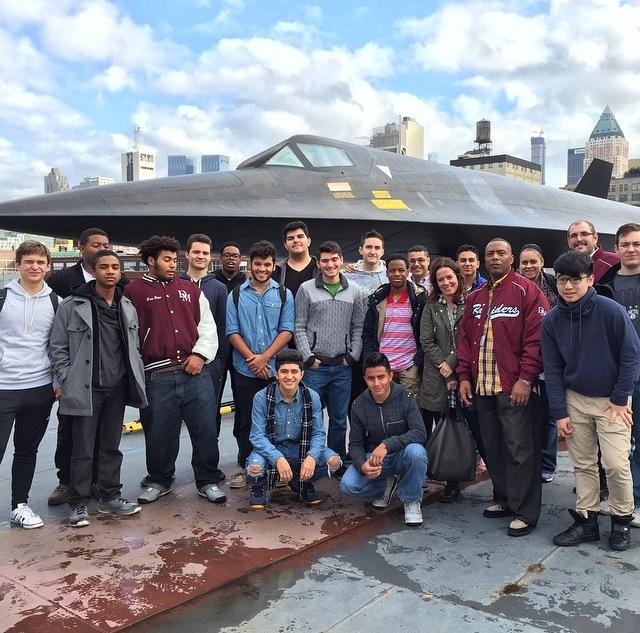The Young Men’s Leadership Council
The Young Men’s Leadership Council has become an established group for the first time this school year on the DMAE campus. Although the group has just begun its major projects, their presence in the student body has been evident for demonstrating appropriate behavior and positive values. Twenty young men were selected out of the total sixty applicants after the application process, which included form submissions with questions about leadership as well as a formal interview by Coach Barry, Liz Corsini of the Zone and Mariam Gerges also of the Zone. The applicants were then evaluated from their individual interviews and qualifications for leadership. The members of the Council have similar reasons for becoming a part of the group. Junior Daniel Puzio pinpointed it.
“I wanted to be involved in the change that will be taking place on campus, such as student awareness on domestic violence,” junior Daniel Puzio said..
The Young Men’s Leadership Council was created after the assembly that took place early in the school year. All male students were required to go and most took a pledge at the assembly against domestic violence.
“This encouraged my friends and I to learn about the experiences of people who have suffered domestic violence,” Daniel said.
The Young Men’s Leadership Council was still formulating its goals for the year at this writing, but most importantly the Council wants to create awareness that domestic violence is a problem that students and adults need to address together.
“The basic idea is that students realize that adults in the school don’t have all the solutions to problems that are going on and by bringing in students to try to collect solutions, it combines that adult focus and student focus,” junior Victor Morell explained. “ It unifies the campus,” he added.
The Young Men’s Leadership Council has weekly formal meetings in which they discuss goals and projects.One future project that the Council is working on is to organize a day for the student body to represent the one-third of the people in the United States that have been domestically abused.



